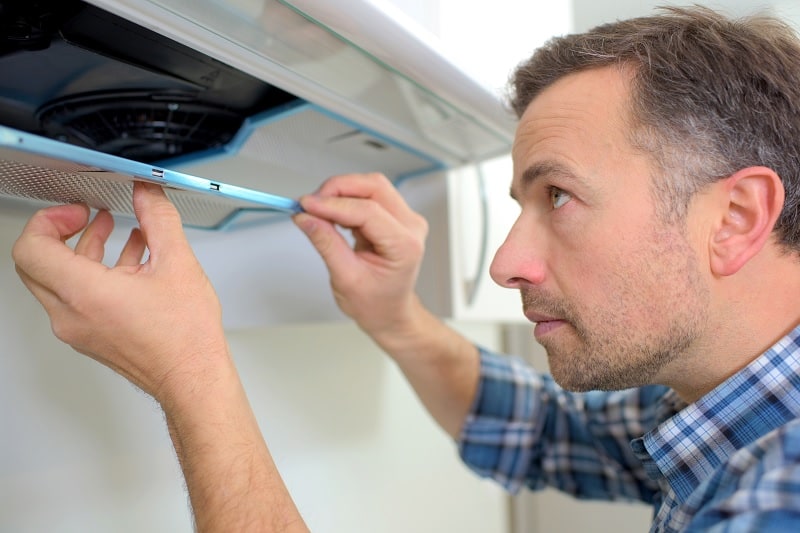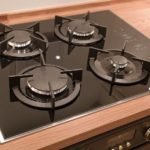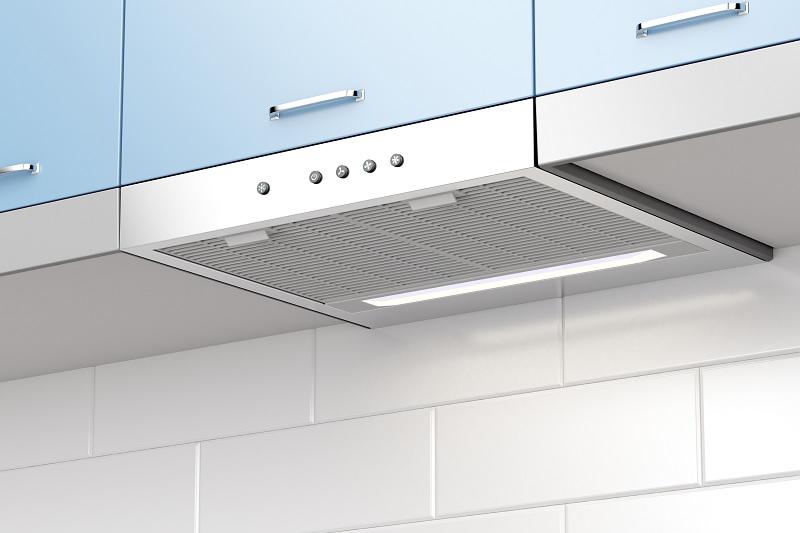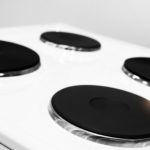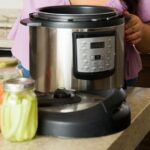Cooker hoods help create an ideal environment for us to cook and spend time in our kitchens. By venting the smoke and heat that comes from our cookers, they also help to avoid a potentially dangerous environment for us and our families.
Every time we cook using a hob, we create a certain amount of air pollution in the process.
When we heat food enough to cook it, a portion of the food will evaporate. For example, if you’re cooking bacon on a griddle plan, you will usually notice smoke, and you’ll want to remove the airborne carbon particles from your kitchen.
Cooking with oil also releases particles of grease that float around while we cook before settling around our kitchen, potentially causing smells and residue. Even steaming food spreads moisture that will eventually cause wood and metal to deteriorate.
If we don’t clean the air while we cook, the cumulative effect of hundreds of cooking sessions is likely to damage our health and property.
Cooker hoods provide us with a way to cook as often as we like whilst keeping our environment healthy, but there can be one problem with them – the noise they make.
Cooker hood noise levels can affect how much we enjoy spending time in our kitchens, but more worryingly an overly noisy cooker hood may even contribute to hearing loss if used regularly over a long time.
How Do Cooker Hoods Work?
Every time you cook, the polluted air from your kitchen needs somewhere else to go. Most cooker hoods fall into the categories of an extraction hood or a recirculation hood.
- Extraction hoods extract air to outside of the building through ducting, but do not filter the air or process it. Extraction hoods can be louder than a recirculation hood because they require more power to push the air through the ducting, but are often more effective.
- Recirculation hoods push the air through filters to remove any cooking smells before reintroducing the air back into the kitchen. These cooker hoods may be quieter and cheaper but are usually less effective at removing smells and pollution from the air than extraction hoods. See the best recirculating hoods on the market here.
The type of cooker hood you choose may depend on distance to the outside of the building from your cooker and also personal choice.
Whichever cooker hood type you choose, it’s recommended that it has a high enough extraction rate for your kitchen size to clear bad smells and pollution, but on some cooker hoods this can mean more noise.
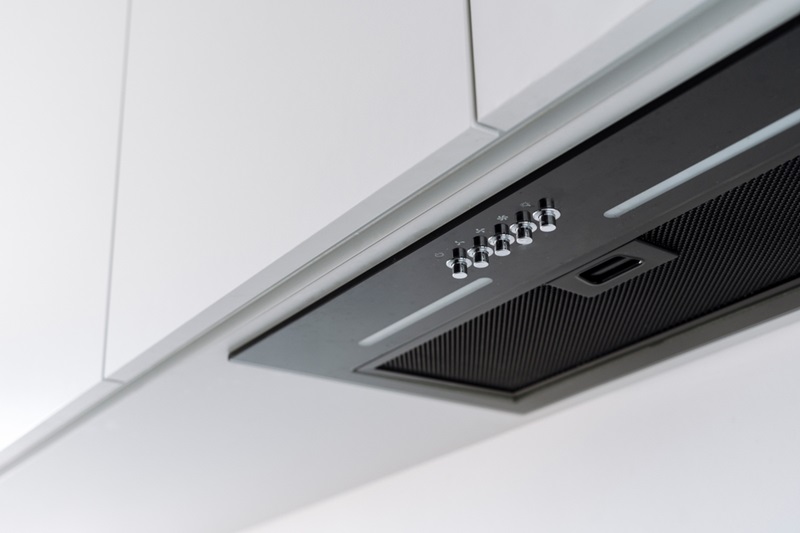
How Loud Should a Cooker Hood Be?
No cooker hood is silent, but just how loud should a cooker hood be?
Cooker hood noise ratings are measured in decibels, and if you want a peaceful cooking environment then the lower the rating the better.
Average cooker hoods
The majority of cooker hoods on the market are around 60-70 decibels (dB), which is around the noise level of a normal conversation.
Quiet cooker hoods
If you really want a peaceful cooking environment, look for a model at around 40 dB, which is the equivalent to a human whisper. We’ve listed some of the quietest cooker hoods here.
Loud cooker hoods
If you’re sensitive to noise, avoid cooker hoods that produce over 70 dB of noise, as this is equivalent to a washing machine or quiet vacuum cleaner.
Duct design will affect noise level for extractor hoods, with less bends, cross-sections and sound reducing materials all helping to reduce noise levels.
It’s also important to be aware that small increases in decibels can make a big difference to perceived volume. A 10 dB increase is equal to a perceived doubling of the volume. A 10 dB decrease is equivalent to halving the volume.
So, a cooker hood producing 60 dB of noise will have a perceived volume twice as loud as a 50 dB cooker hood.
A 40 dB cooker hood may sound almost as quiet as the ambient background noise in a library, but the noise level of cooker hood generating 70 dB is similar to the level of a washing machine or even a vacuum cleaner.
However, it’s worth noting that the ratings for a cooker hood will be based on maximum settings, so even a 70+ dB rated cooker hood will be quieter most of the time unless you’re using it on full power.
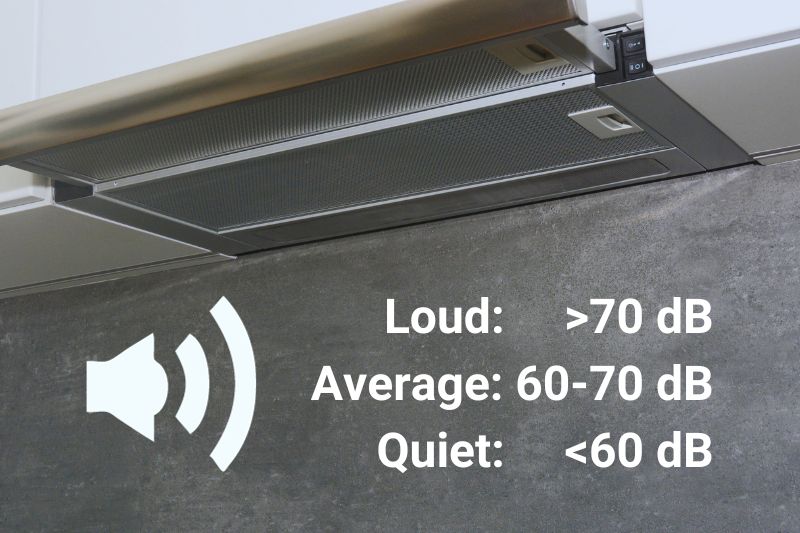
Conclusion
It can be hard to know exactly how loud a cooker hood will be until you have it installed and running in your home. Other factors such as the size and shape of your kitchen can make a difference.
Also remember that maximum decibel ratings on product descriptions only apply to having the hood on full power, so if you have it on a lower setting it might be much quieter.
If you’re looking to buy one online you should look for a quiet cooker hood in the 40-60 decibel range – remembering that even an increase in 10 dB will make a big difference to the noise level.
It’s also worth checking customer reviews to see just how quiet the cooker hood will work in a real home.

Chef’s Pick is your guide to the best kitchen equipment and appliances in the UK.
We help you understand the confusing world of cookers, ovens and cookware so you can get the most out of your kitchen.

